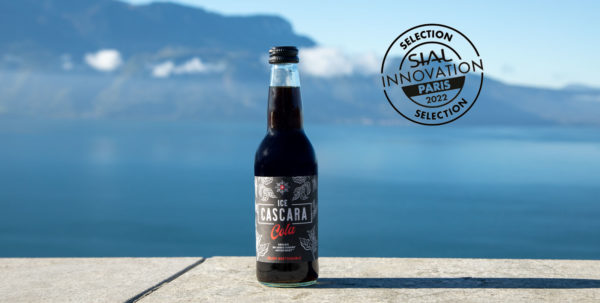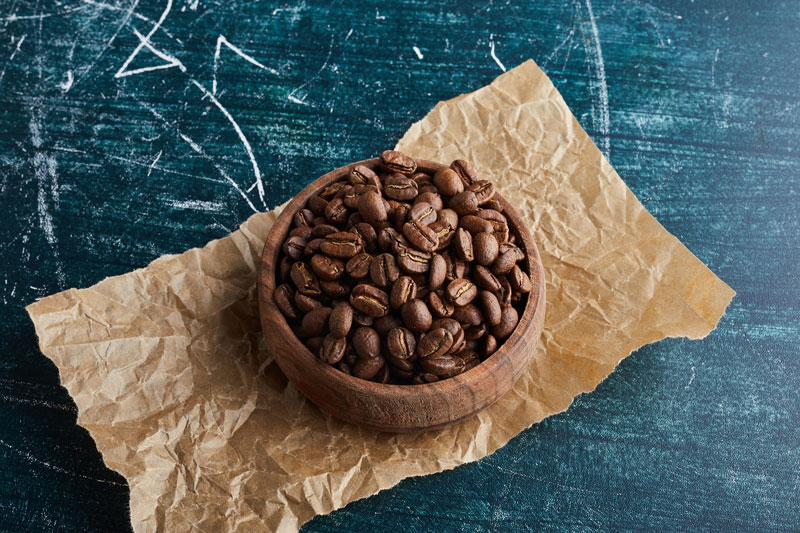
The first Swiss upcycling cola to be discovered at SIAL
The company Ecocascara SA, innovator in Europe in the use of water-soluble...
Read this article
Concerned about your health and the environment, you drink organic coffee but is organic coffee ethical? Is the organic coffee market really "eco-friendly"? Today, consumers are more aware than ever of the dangers of the linear economy on the environment. This is why many people only consume products labelled "organic".
All industries have gone organic, including the coffee industry. Many brands and companies claim that their production is 100% ethical and environmentally friendly. But what is really going on, do the big coffee producers really respect their commitments to sustainable and ethical production? In this article, you will discover the hidden side of the organic coffee market.
When you talk about organic, the first things that come to people's minds are 'natural' and 'more expensive'. People don't necessarily look for what is behind the AB label, a logo that must be present on organic products, including coffee.
In order for a product to be certified as organic, specific and regulated production methods are required, and all stages of production must comply with organic regulations in order for a product to be labelled.

Organic farming can be defined as a production method that is mindful of the natural balance. Chemical products that could alter the fertility of the soil and pollute the environment are not used (fertilizers, fertilizers, insecticides, etc.). This agricultural practice favours :
Recycling of organic materials by using them as natural compost;
Biological and non-chemical control;
Soil fertility through crop rotation ;
Isolation of coffee plots to avoid any risk of contamination;
Storage under environmentally friendly conditions.
We can therefore say that an organic coffee is a product of organic agriculture, but what is an ethical coffee? In reality, it is a product that adopts a linear mode of production, i.e. everything is sustainable, from the management of natural resources to the ecological treatment of waste, and this includes educating the consumer about the circular economy.
Coffee is one of the most consumed beverages in the world, and traditional production methods are responsible for a large part of the deforestation, which is why this industry must go organic.

Today, many large coffee producers guarantee that their products are organically grown. And this is true, because the production and cultivation method is environmentally friendly, but did you know that these same organic producers throw away no less than 30 million tonnes of cascara every year?
In order to explain what it is, you need to know that to make coffee, only the beans (pits) of the coffee cherry are extracted, the pulp or flesh is shamefully discarded, it is called cascara. It can be said that the large organic producers do not respect a sustainable economic model by generating so much waste.
When you buy organic coffee, you are buying a product that has not been produced using chemicals and is not responsible for deformation, but it is not that ethical. In order to be both organic and ethical, coffee producers must ensure better waste treatment so as not to cause resource depletion.
Our start-up can do much to make the organic coffee industry even more ethical. We use cascara to produce a drink that is organic, ethical, refreshing and above all healthy. Our business model is based on sustainability to limit the waste of resources and energy.
In order to apply the circular economy to the organic coffee industry, large producers can collaborate with start-ups, such as ours, and not only open up new markets, but also protect the environment and prevent the waste of resources.
As we explained to you, only the coffee cherry pit is used by organic farmers, they don't need the cascara. We can contribute by collecting the coffee pulp, so the producers don't have to worry about waste disposal and we can take care of creating our cascara drink.

Our start-up can make a real contribution to making the coffee industry more ethical and supporting organic producers who want to develop a green and sustainable business model. Instead of just recycling, we are upcycling, the art of making use of waste. We are helping the planet and enabling producers to open up to new perspectives of sustainable development that are more respectful of the ecology and above all more ethical.
We hope you have found this article useful.
The Cascara Society team

Browse other articles :
The company Ecocascara SA, innovator in Europe in the use of water-soluble...
Read this articleIt is important to know that sugar, in particular glucose, is a...
Read this articleLittering is a worrying phenomenon that causes a lot of environmental pollution....
Read this articleIn order to fight against oxidative stress and ageing...
Read this articleMany people consume zero drinks without realizing it.
Read this articleFood packaging is a real environmental hazard. Strong...
Read this article| Cookie | Duration | Description |
|---|---|---|
| cookielawinfo-checkbox-analytics | 11 months | This cookie is set by GDPR Cookie Consent plugin. The cookie is used to store the user consent for the cookies in the category "Analytics". |
| cookielawinfo-checkbox-functional | 11 months | The cookie is set by GDPR cookie consent to record the user consent for the cookies in the category "Functional". |
| cookielawinfo-checkbox-necessary | 11 months | This cookie is set by GDPR Cookie Consent plugin. The cookies is used to store the user consent for the cookies in the category "Necessary". |
| cookielawinfo-checkbox-others | 11 months | This cookie is set by GDPR Cookie Consent plugin. The cookie is used to store the user consent for the cookies in the category "Other. |
| cookielawinfo-checkbox-performance | 11 months | This cookie is set by GDPR Cookie Consent plugin. The cookie is used to store the user consent for the cookies in the category "Performance". |
| viewed_cookie_policy | 11 months | The cookie is set by the GDPR Cookie Consent plugin and is used to store whether or not user has consented to the use of cookies. It does not store any personal data. |